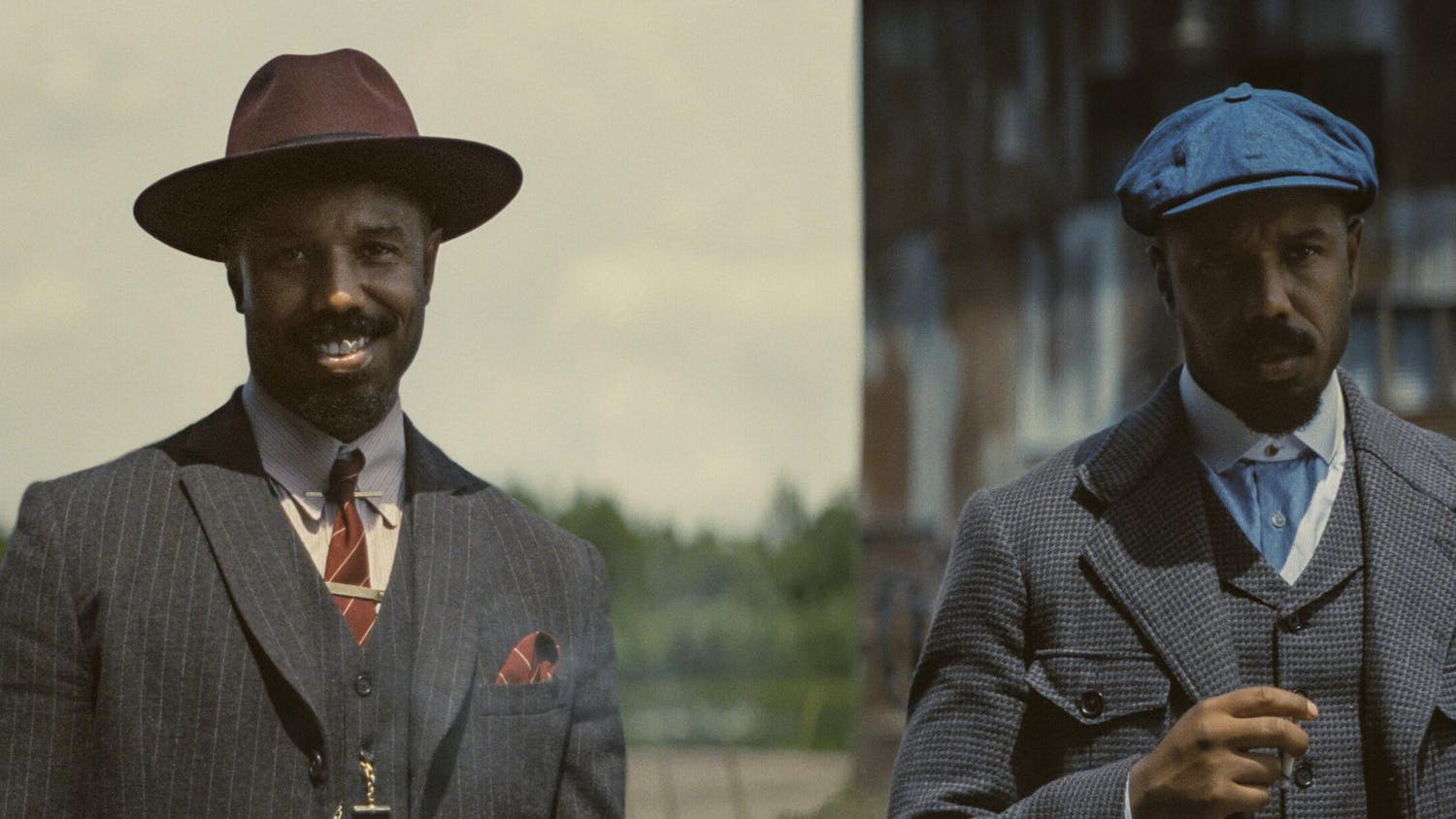NEAR FALLUJAH, Iraq -- Thousands of U.S. troops, backed by armor and a stunning air barrage, attacked Sunni insurgents' toughest strongholds in Fallujah on Monday, launching a long-awaited offensive aimed at putting an end to guerrilla control of the Sunni Muslim city.\nAfter nightfall, U.S. troops advanced slowly on the northwestern Jolan neighborhood, a warren of alleyways where Sunni militant fighters have dug in. Artillery, tanks and warplanes pounded the district's northern edge, softening the defenses and attempting to set off any bombs and boobytraps before troops moved in.\nAnother force pushed into the northeastern Askari district, the first large-scale assault into the insurgent-held area of the city, the military said. U.S. tanks and Humvees from the 1st Infantry Division could be seen inside Askari.\nMarines were visible on rooftops inside Jolan. This reporter, located at a U.S. camp near the city, saw orange explosions lighting up the district's palm trees, minarets and dusty roofs, and a fire burning on the city's edge.\nSome 5,000 U.S. Marines and soldiers were massed in the desert on Fallujah's northern edge participating in the assault. Iraqi troops deployed with them took over a nearby train station after the Americans fired on it to drive off fighters.\nThe top U.S. commander in Iraq, Gen. George Casey, predicted a "major confrontation" on the streets of Fallujah in the operation he said was called "al-Fajr," Arabic for "dawn." He told reporters in Washington on Monday that up to 15,000 U.S. troops along with Iraqi forces were encircling the city.\nTwo Marines were killed when their bulldozer flipped over into the Euphrates near Fallujah earlier Monday. A military spokesman estimated that 42 insurgents were killed across Fallujah in bombardment and skirmishes before the main assault began.\nA doctor at a clinic in Fallujah, Mohammed Amer, reported 12 people were killed. Seventeen others, including a 5-year-old girl and a 10-year-old boy, were wounded he said.\nIraqi Prime Minister Ayad Allawi said he gave the green light for troops to launch the long-awaited offensive against Fallujah, aimed at re-establishing government control before elections set for January. He also announced a round-the-clock curfew in Fallujah and another nearby insurgent stronghold, Ramadi, flexing emergency powers he was granted the day before.\n"The people of Fallujah have been taken hostage ... and you need to free them from their grip," he told Iraqi soldiers who swarmed around him during a visit to the main U.S. base outside Fallujah just before the attack began.\n"May they go to hell!" the soldiers shouted, and Allawi replied: "To hell they will go."\nEarlier Monday, U.S. and Iraqi forces seized two bridges over the Euphrates River and a hospital on Fallujah's western edge that they said was under insurgents' control. A team of Marines entered northwestern Fallujah and seized an apartment building.\nIn Washington, Defense Secretary Donald Rumsfeld said insurgents would likely put up a tough fight. "Listen, these folks are determined. These are killers. They chop people's heads off. They're getting money from around the world. They're getting recruits," he told reporters.\nU.S. commanders have avoided any public estimate on how long it might take to capture Fallujah, where insurgents fought the Marines to a standstill last April in a three-week siege.\nCommanders have estimated around 3,000 insurgents are barricaded in the city. Casey said that some insurgents managed to slip away, but others "have moved in." U.S. military officials believe that 20 percent of Fallujah's fighters are foreigners, while the rest are Iraqi residents.\nCasey said between 50 and 70 percent of the city's 200,000 residents have fled the city. The numbers are in dispute, however, with some putting the population at 300,000. Residents said about half that number left in mid October, but that many drifted back into the city.\nRumsfeld said "there's nobody who knows how many people are in there," but predicted "there aren't going be large numbers of civilians killed and certainly not by U.S. forces."\nAs the main assault began in Fallujah, thunderous explosions could be heard across central Baghdad, some 40 miles to the east. Militants detonated car bombs in quick succession near two churches in southern Baghdad after sundown, killing at least three people and injuring 52 others, according to the U.S. military and police.\nA U.S. soldier was killed when his patrol was fired on in eastern Baghdad, the military said. Southwest of Baghdad, a British soldier was killed in an incident that appeared to involve a roadside bomb, the Ministry of Defense said in London.\nThe prelude to the Fallujah offensive was a crushing air and artillery bombardment of the city that built from the night before, through Monday morning and afternoon then rose to a crescendo by Monday night.
U.S. strikes Fallujah
Forces join Iraqi soldiers in attack on insurgent stronghold
Get stories like this in your inbox
Subscribe



